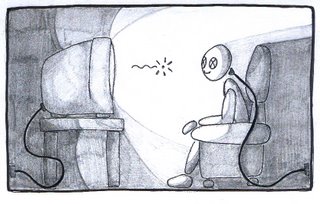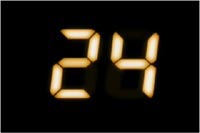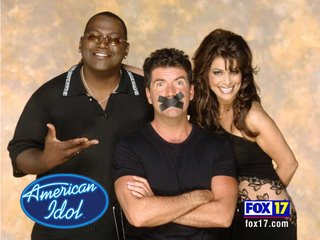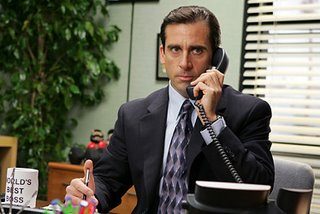The Good Shepherd

I write film and TV reviews at DVDFanatic.com. Here are synopsis' and links to those reviews.
“I have some real problems with this whole thing, despite how much we need it. I’m concerned that too much power will end up in the hands of too few. It’s always in someone’s best interest to promote enemies whether real or imagined. I see this as America’s eyes and ears — I don’t want to see it before its heart and soul.” – General Bill Sullivan
A few weeks ago I spent several intoxicating hours at The International Spy Museum in Washington D.C. The museum chronicled spycraft from the beginning of civilization to today, introduced the visitor to the most masterful spies ever to engage in espionage, and displayed hundreds of the actual gadgets these spies used to fulfill their missions. (Highly recommended for any visitor to our nation’s capitol!) Still reveling in that visit, I came to The Good Shepherd with a rich background of cloak and dagger history and an eager yearning for more. What I got was admittedly rich in detail but woefully short on emotion.
The Good Shepherd is a slow, deep and methodically paced look at the birth of the CIA. Rather than being a semi-documentary historical account, the film is strongly character-based. It tracks the agency’s vanguard missions through the eyes of the man who would eventually become her Chief of Counter-Intelligence, Edward Wilson (Matt Damon). We first meet Edward at Yale where he is playing Little Buttercup in drag during a performance of Gilbert and Sullivan’s “HMS Pinafore.” He is jovial and quick-witted, a WASP college student enjoying a life of privilege and amusement. So his stark transition from carefree poetry major to “serious SOB without a sense of humor” is a bit hard to reconcile.
The sea change occurs when Edward is initiated into Skull and Bones, a secret society that counts many of America's ruling elite (including our current president) as members. After a homoerotic, pagan induction ceremony, the young men pledge their eternal brotherhood to one another. Their secretive organization – white boys from the very best families – is the perfect breeding ground from which to recruit for another, even more clandestine organization — World War II's Office of Strategic Services (which would morph into the CIA following the war). It isn’t long before General Bill Sullivan (Robert DeNiro) comes to Edward with a job offer.
Just a week after his shotgun wedding to Margaret (Angelina Jolie), the sister of one of his fellow Bonesman (and the women for whom he has to abandon his true love) Edward is dispatched to England during the blitz, where he hones his spycraft and learns the cardinal rule of intelligence: trust no one. To say he quickly rises through the ranks would be a misnomer — he creates the ranks in the first place. This is a world of secret codes and dead-drops; a world in which a gray hat on a park bench is never just a gray hat on a park bench.
From England, Edward finds himself in Germany after the surrender, ferreting out Nazi scientists that the West wants to recruit before the Soviets have a chance to get ahold of them. It is a deadly game of cat and mouse one minute, a chess game of cunning and guile the next as each side dispatches the other’s players with ruthless efficiency and wrestles to stay one step ahead of betrayals, double-crosses and fluid allegiances.
Edward is surrounded by spies from his fellow Bonesmen, his professor at Yale (Micheal Gambon), an FBI agent (Alec Baldwin), his stalwart second-in-command (John Turturro), a dapper British agent (American Billy Crudup in a great if terribly accented performance). The closest person to a friend that Edward has is his nemesis, the Soviet spymaster Ulysses (Oleg Stefan). Theirs is a relationship built on begrudging respect and barely submerged menace. No one understands or sympathizes with Edward more. In a very real way, both men feel as if they, and not their leaders, are running their respective countries.
When Edward finally returns home, he is a stranger in his own house — the son he’s never met is six-years-old and his imbalanced and unstable wife is a baffling mystery. If Edward was detached before he left, he is ice-cold and impenetrable now, a man utterly detached from his emotions. That Margaret would ever have found anything remotely attractive about him is a stretch the filmmakers ask us to accept; that she no longer feels anything whatsoever toward him is an easy bridge to cross. If any of thise bothers Edward, he doesn’t let on. Seemingly nonplused, he begins the second half of his life managing the CIA’s counter intelligence operations from Washington D.C.
The longer Edward stays in his job, the harder and more paranoid he becomes. When an almost certainly innocent suspect exclaims, “We Italians have our families and the church, the Irish have the homeland, the Jews their tradition, even the niggers got their music. What about you? What do you guys have?”
Edward replies without emotion, “We have the United States of America. The rest of you are just visiting.”
The Good Shepherd charts the evolution of the CIA against the march of Wilson’s life. Both begin infused with patriotic idealism and end in distrustful, isolated brutality. The cost of living in a world of lies is Wilson’s very soul not to mention the souls of all those around him. After affairs and betrayals on both sides, Edward’s marriage implodes.
“I don't know what you do!” Margaret screams at him one night. “You leave at five, you're home at ten, seven days a week! I live with a ghost! I don't know anything about you!”
His grown son is terrified of him, and he has isolated himself from anyone who ever cared for him. So consumed with protecting his country, Edward sacrifices everything — his family and his soul — for his job. He possesses a sense of noblesse oblige that is stronger even than his own humanity. In the end, one must wonder if the former poetry major ever viewed himself as one of T.S. Elliot’s hollow men?
(Edward Wilson is based on the real-life spy, Jesse Jesus Angleton. Angleton, in his latter career became a man crippled by paranoia and fear. He speculated that Henry Kissinger, various members of Congress and at least two American presidents were compromised by the KGB. He suspected that the anti-war and civil rights movement of the 1960s and 1970s had communist support and illegally compiled tens of thousands of case files on American citizens. He believed the Soviet Union planned on staging its own demise in order to lull the West into a false sense of security. A growing embarrassment to the CIA, he was eventually forced into retirement.)
Though The Good Shepherd is situated in the 20th century, its philosophy is nonetheless very contemporary. Without being overtly disparaging, it questions the intelligence gathering capabilities of the CIA (abilities called into deep question the past several years) and takes dead aim at political fear mongering. During a violent interrogation of a KGB agent, the Russian breaks down and utters, “Soviet power is a myth…nothing is working…it’s nothing but painted rust…but you need to keep the myth alive to maintain your military industrial complex. Your system depends on Russia being perceived as a mortal threat.” It is a chilling indictment of our time as well as their’s.
Though the film follows Edward for more than 35 years, he and his fellow actors barely seem to age, creating awkward moments especially in the interactions between Damon and his grown son. One thing the film does exceptionally well is its framework story. The film actually begins in 1961 as the American-supported Bay of Pigs operation to dislodge Fidel Castro from Cuba ends in disaster. Heads are going to role and Edward finds his on the chopping block. With little time to discover who leaked their plans to the Cubans, Edwards embarks on a mole hunt. The “present day” scenes in which he and his analysts unravel the clues are completely fascinating.
Directed with even-keeled expertise by Robert DeNiro (only his second film) from a script by Munich’s Eric Roth, The Good Shepherd is an ambitious film whose reach ultimately exceeds its grasp. Clocking in at just shy of three hours, The Good Shepherd feels, in many ways, like the Godfather films — an examination of the personal and the business — and the lives of those who are destroyed by one man’s rigorous compartmentalization of his life.
It is a shame then that the film takes on the temperament of its unappealing leading man. Edward’s cold-blooded nature is so impenetrable that it keeps everyone in the film (and in the theater) at arm’s length. Too detached to be completely effective, this austere and anti-septic film isn’t for everyone. If you prefer your spy stories to be the sort of fantastical universes of gorgeous girls, double-entendres, arch villains, clever gadgets, fast cars and huge explosions, rent Casino Royale. But if you want a serious look at the torturously slow and agonizing numbing life of real intelligence work try The Good Shepherd.
Just be warned that you will probably come away from it impressed but unmoved.
To read the full review, click here.
























